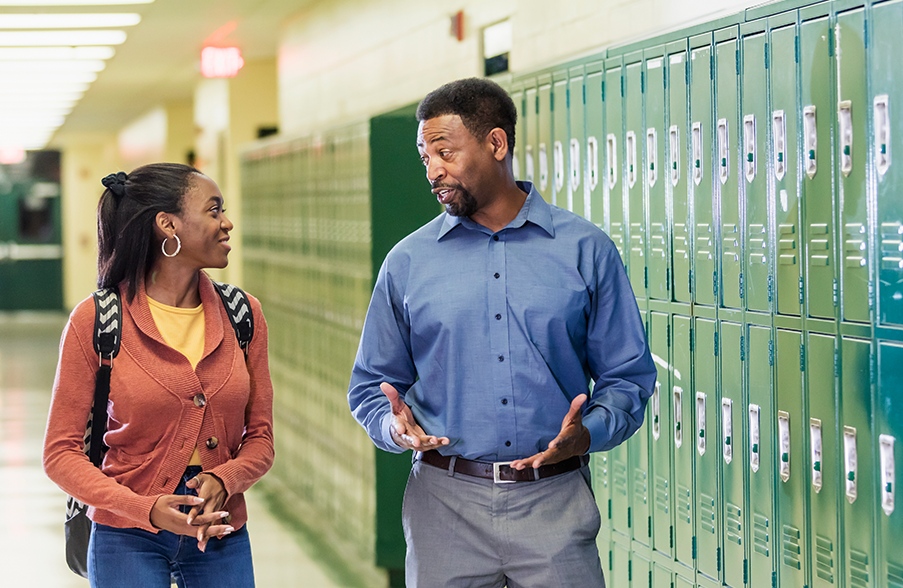Whether they are aspiring teachers, talented members of the community, or veteran subs, great substitute teachers will share distinct qualities that help them quickly integrate into a new school and connect with students. When building your sub pool, look for individuals with these seven qualities.
1. Passion
Most substitute teachers are looking for more than just a paycheck. They’re excited about education, knowledgeable about best practices, and committed to student growth. Students recognize educators who care about their success, and it’s important to hire with this in mind. When evaluating a sub, pay attention to the ones that make you say “yes” to these questions:
- Is the substitute excited to be working at your school?
- Do they seem genuinely interested in engaging with students?
- Do they have any previous experience supporting students’ growth?
2. Sense of humor
There’s no need for subs to be stand-up comedians, but the ones who don’t take themselves too seriously often thrive in a classroom. Studies show that humor can diffuse tension and stress, promote creative understanding, and improve retention of information. Here’s how great subs bring humor into the classroom:
- Laughing at themselves when they make a mistake
- Allowing students to let their creative and silly sides come through
- Making connections between educational content and everyday life
3. Interpersonal skills
Being part of a school team requires interacting with a wide range of people, from administrators and colleagues to students and parents. Look for subs with well-honed interpersonal skills:
- Verbal communication: students are more responsive to someone who speaks clearly and with confidence.
- Nonverbal communication: it’s important for substitutes to understand how their facial expressions, hand gestures, and body language can all affect their command of the room.
- Attentive and empathetic: promising substitute candidates will be able to quickly read the room and address the varying needs of the students while maintaining control of the class.
4. Adaptability
Considering that the job often requires subs to work in a new school, with a new set of people, in a new town, it follows that substitute teachers need to be able to adjust to change quickly. It’s possible that the sub who was teaching 3rd grade math in a suburban school on Tuesday will be in a city high school journalism class on Wednesday. Someone with this type of adaptability will be able to respond to the chaotic situations that can pop up during a school day.
5. Stamina
A certain amount of physical and mental endurance is necessary for substitutes to keep up with students and to remain effective classroom leaders until the dismissal bell sounds. If you are working with new subs, the type of stamina needed for an active school day takes time to develop, so give your new subs the benefit of the doubt as they adjust. If they finish their first day exhausted, let them know that it gets easier with time!
6. Accountability
Substitute teaching requires juggling policies, procedures, and lesson plans while prioritizing the heart of the work: supporting students and ensuring that their learning is continuous. It’s crucial that subs can navigate between what is inconsequential and what must be taken seriously, especially in the unlikely event of a disciplinary issue or student safety concern.
7. Confidence
Students intuitively need to know that the person in charge is competent and trustworthy in order to give their best. An effective substitute teacher can walk into the classroom with confidence and maintain it while making decisions, managing conflict, and addressing problems. And the best subs know that even when assuredness waivers, it doesn’t hurt to “fake it ‘til you make it!”






